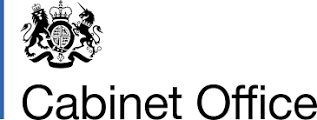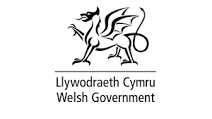PRESS RELEASE : £2 bus fare cap to be extended and bus services protected with new funding [February 2023]
The press release issued by the Department for Transport on 17 February 2023.
Funding to help passengers save money on fares, get more people on the bus and protect vital bus routes.
- bus fare cap to be extended for 3 months, backed by up to £75 million to help passengers save money and Get Around For £2
- government also confirms up to £80 million to continue support for critical bus services around England
- lifeline funding takes total to more than £2 billion since March 2020
Millions of passengers across England will benefit from £155 million in government support to cap bus fares at £2, maintain services and ensure people can travel affordably.
The Transport Secretary today (17 February 2023) confirmed £80 million from 1 April to 30 June 2023 to protect vital bus services people rely on for work, education, medical appointments and shopping.
The government has also announced plans to provide up to £75 million so that bus operators can continue to cap single bus fares outside of London at £2 until the end of June, saving passengers money and encouraging more people back on the bus. With the average single local bus ticket costing £2.80, passengers can save almost a third of the ticket price. Bus operators that are continuing the £2 fare cap scheme will be confirmed in due course.
During the pandemic, bus usage dropped as low as 10% of pre-pandemic levels, and the government has provided unprecedented financial support totalling more than £2 billion since March 2020.
With bus patronage still at around 85 to 90% of pre-coronavirus (COVID-19) levels, there are a number of ongoing challenges for bus operators. The government is working closely with the sector on the challenges they face with changing travel patterns since the pandemic and will continue to work on delivering the National Bus Strategy.
The government’s existing £60 million investment to cap single bus fares has already shown early signs of increased bus use, with an independent survey of 1,000 people from passenger watchdog Transport Focus showing 7% of people saying they are using the bus more. During these difficult economic times, these trends already indicate that the government’s support to cap fares is a welcome intervention, helping families, commuters and all passengers to ease the cost of living.
Prime Minister Rishi Sunak said:
I want to make bus travel affordable for all, that’s why we’re continuing to cap fares at £2 and protecting local routes, ensuring we have a modern and efficient network that’s accessible for everyone.
Getting more people onto reliable and affordable buses will strengthen communities and help grow the economy – connecting people to jobs, driving pensioners to see friends and family, and helping people attend medical appointments or access education.
I’m determined to ensure that no matter where you live, you have the same opportunities to get around easily and can feel pride in your local area – which is why protecting our local bus services is so important.
Transport Secretary Mark Harper said:
Travelling by bus remains the most popular option for commuters and families across the country, but the sector is still trying to recover after the end of the pandemic.
We’re providing £155 million to help passengers save money on fares, get more people on the bus and protect vital bus routes – helping with the cost of living and enabling people to get where they need to in an affordable and convenient way.
The recovery grant support comes in addition to government investment of £3 billion in bus services by 2025, including over £1 billion to improve fares, services and infrastructure.
In 2021, the government published the National Bus Strategy, and asked all English local transport authorities outside London to publish their Bus Service Improvement Plans (BSIPs) setting out local visions for the step-change in bus services that is needed, driven by what passengers and would-be passengers want.
Since then, over £1 billion has been awarded to 34 counties, city regions and unitary authorities to deliver service improvements, bus priority and ambitious fares initiatives. In addition, £5.7 billion investment has been provided to 8 mayoral combined authorities in England to support integrated, cross-modal transport networks over the next 5 years through the City Region Sustainable Transport Settlement (CRSTS), including supporting bus infrastructure.



